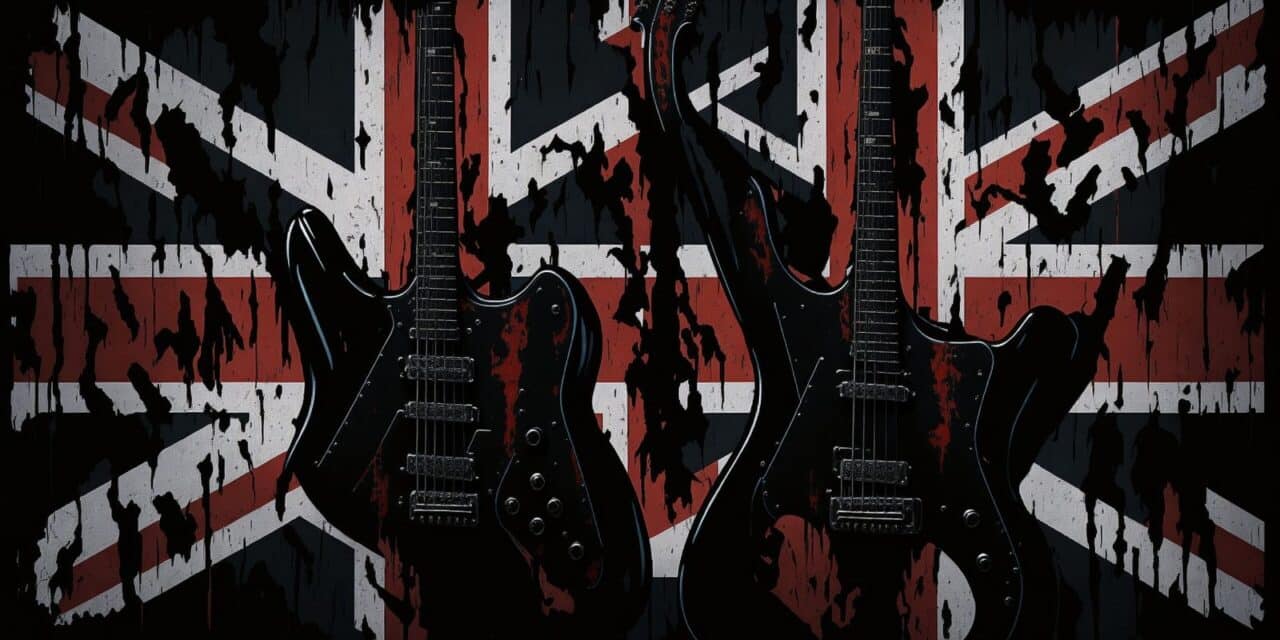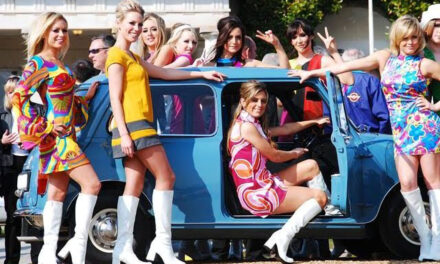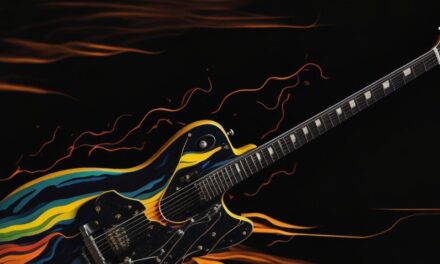Punk rock emerged in the mid-1970s as a powerful force in both music and culture, mainly in the United States and the United Kingdom. The term “punk” was used to describe a countercultural movement that sought to break away from the mainstream and express raw, unfiltered emotions through aggressive music and confrontational attitudes. The punk rock revolution in the UK during the 70s, with its unforgettable bands, rebellious fashion, and groundbreaking philosophies, left an indelible mark on history that continues to resonate today.
The Origins of Punk Rock
Punk rock can be traced back to the late 1960s and early 1970s, with bands like The Stooges, MC5, and the New York Dolls starting to push the boundaries of rock music. These bands experimented with raw, aggressive sounds and provocative stage presence, laying the groundwork for the punk rock movement that would follow.
The Rise of Punk in the UK
In the UK, punk rock exploded onto the scene in the mid-70s, fueled by a sense of disenfranchisement and dissatisfaction with the status quo. Economic struggles, high unemployment, and political unrest set the stage for a youth-led rebellion against societal norms. The British punk movement provided a voice for the disaffected youth and a platform for them to express their anger and frustration through music and art.
Key Bands and Figures
Several iconic British punk rock bands emerged during this time, each contributing to the development of the genre and the movement’s overall ethos.
The Sex Pistols – The most notorious and controversial punk rock band, the Sex Pistols, were led by frontman Johnny Rotten (John Lydon) and bassist Sid Vicious. Their provocative lyrics, outrageous behavior, and anarchic attitude embodied the spirit of punk rock.
The Clash – Fronted by Joe Strummer, The Clash were known for their politically charged lyrics, incorporating elements of reggae and ska into their punk rock sound. They gained a reputation as a socially conscious band that tackled issues such as poverty, racism, and police brutality.
The Damned – As one of the first British punk bands to release a single and an album, The Damned were pioneers in the scene. Their high-energy performances and catchy tunes helped to establish punk rock as a powerful musical force.
These bands, along with numerous others, played a crucial role in defining the punk rock sound and ethos. Key figures like Johnny Rotten, Joe Strummer, and Siouxsie Sioux became the faces of the movement and inspired countless other musicians and fans alike.
The Punk Rock Venues
Legendary punk rock venues in the UK, such as the Roxy and the 100 Club, served as hubs for the punk community. These venues allowed bands to showcase their talents and gain exposure, while also providing a space for fans to connect and share ideas. The Roxy, located in London, became synonymous with punk rock, hosting some of the most memorable performances by bands like The Clash, X-Ray Spex, and Generation X. The 100 Club in London also played a pivotal role in the punk scene, hosting the infamous 100 Club Punk Special in 1976, which featured performances by the Sex Pistols, The Clash, and The Damned, among others.
The Punk Fashion and Aesthetic
Punk fashion and aesthetic were an integral part of the movement, serving as a visual representation of the rebellion and anti-establishment sentiment. The punk look was characterized by torn clothing, leather jackets, band t-shirts, and unconventional accessories like safety pins and chains. The style was a deliberate rejection of the polished and sophisticated mainstream fashion trends of the time. Punk fashion borrowed elements from various subcultures, including bikers, rockers, and the BDSM scene. The look was often completed with combat boots or worn-out sneakers, emphasizing the gritty and raw nature of the punk lifestyle.
Hairstyles and Makeup
Punk hairstyles were typically short, spiky, and dyed in bright colors. The most iconic punk hairstyle was the Mohawk, a strip of hair running down the center of the head with the sides shaved off. Makeup was bold and dramatic, with heavy black eyeliner, bright lipstick colors, and sometimes even face paint. Both men and women embraced these looks as a way to challenge conventional beauty standards and express their individuality.
The Punk Attitude and Philosophy
At its core, punk rock was about more than just music and fashion; it was a way of life that embraced a set of values and beliefs. Punk embraced a DIY ethos, encouraging individuals to create their own music, art, and fashion, rather than relying on mainstream outlets. This DIY spirit led to the rise of independent record labels like Stiff Records and Rough Trade, as well as the proliferation of fanzines, self-produced magazines that covered the punk scene and featured interviews, reviews, and artwork. The DIY ethos was also evident in the punk community’s approach to fashion, as individuals often customized their clothes with patches, paint, and other embellishments to create a unique and personal look.
Rebellion and Political Activism
Punk rock was a rebellious movement that pushed back against societal norms and authority figures. Many punk bands and fans were politically engaged, advocating for social change and challenging the status quo through their lyrics and actions. Punk rock provided a platform for marginalized voices to be heard and for the younger generation to express their dissatisfaction with the world around them. Themes like anti-establishment, anti-capitalism, and anti-war sentiments were common in punk lyrics, reflecting the movement’s desire for change and resistance to conformity.
The Impact of Punk on Mainstream Music
The punk rock movement left an indelible mark on the music industry, influencing a wide range of genres and artists. Punk’s raw sound and stripped-down approach to songwriting inspired future bands, while its DIY ethos paved the way for independent music scenes and the rise of alternative rock. Bands like U2, R.E.M., and Nirvana all cited punk rock as a major influence on their music. Punk rock also inspired the development of various subgenres, such as post-punk, new wave, and hardcore punk, each of which continued to push the boundaries of music and culture.
The Decline and Legacy of Punk Rock
By the early 1980s, the original punk rock movement began to wane as bands disbanded, evolved their sound, or were co-opted by the mainstream. The emergence of new wave and post-punk bands marked a shift in musical tastes, while the punk scene became increasingly fragmented. However, the spirit of punk lived on through various subgenres and offshoots, such as post-punk, new wave, and hardcore punk.
The legacy of punk rock is still felt today, both in music and in the broader cultural landscape. The movement challenged societal norms, encouraged individual expression, and left a lasting impact on fashion, art, and politics. Punk rock’s influence can be seen in the works of contemporary artists, musicians, and fashion designers who continue to push boundaries and challenge conventions.
Conclusion
Punk rock in the UK during the 70s was a groundbreaking and influential movement that pushed the boundaries of music, fashion, and culture. It provided a voice for the disaffected youth and a platform for them to express their anger, frustration, and desire for change. The movement’s rebellious nature, DIY ethos, and iconic bands like the Sex Pistols, The Clash, and The Damned left a lasting impact on the music industry and the cultural landscape as a whole. Although the original punk rock movement may have declined, its spirit and influence continue to resonate today. The legacy of punk rock can be seen in the countless musicians, artists, and activists who continue to push boundaries, challenge norms, and fight for change. The punk rock revolution in the UK 70s will forever be remembered as a time of rebellion, innovation, and lasting cultural impact.















